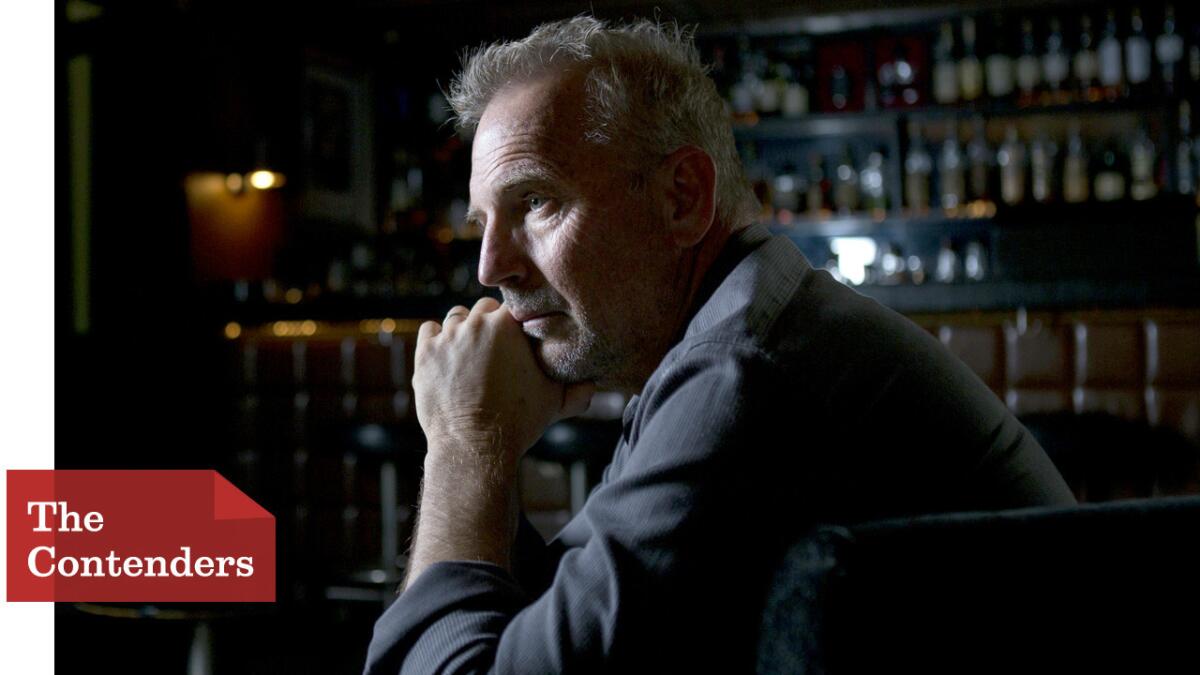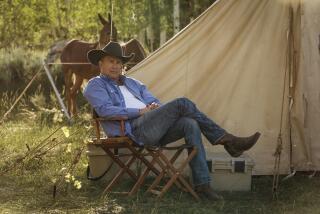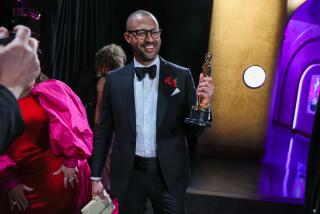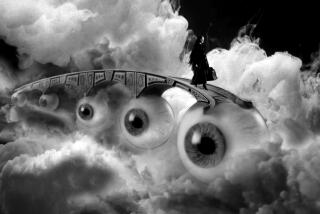Kevin Costner’s ‘Black or White,’ a labor to produce, explores gray areas

No studio wanted to make it. And once he had spent $9 million of his own money to produce it, no one stepped up to distribute the thing. Passion project, albatross, conversation starter? Just don’t let Kevin Costner hear you call his new film “refrigerator art.”
“‘Black or White’ is really a giant metaphor for my career,” Costner says, laughing in the bright sunshine of an early December day. “I’m a bit of a plodder. I didn’t happen at 22. I started to happen around 28, 29. Certain movies have been hard for me to get made. It’s a bit of a pattern for me. ‘Bull Durham’ was not a cinch movie to be made. ‘Dances With Wolves’ was not going to be made for the longest time.
“Studios are publicly traded companies, and they really have to look at that bottom line. The slots for a movie like this, maybe there’s one a year for each studio, and maybe that was filled. There was no spot for ‘Black or White,’” he says of his second collaboration with “The Upside of Anger” writer-director Mike Binder.
“This isn’t a piece of refrigerator art that your mom looks at and nobody else does,” he says of the indie he financed himself. “I understood it seemed like a smaller movie, but it had a big idea, and it could catch wind. I liked where ‘Black or White’ took me emotionally. It created a conversation moment I had not thought of — it actually advanced my thinking. I thought, ‘With a little luck, this could be incredibly profitable.’”
Costner plays Elliot, a successful lawyer whose wife has just died. That leaves him to raise his mixed-race granddaughter, Eloise, whose mother — Elliot’s daughter — is also dead and whose drug-addled father, Reggie, is out of the picture. The hard-drinking lawyer has to fend off a custody challenge from Reggie’s mother in Compton, who doesn’t think Eloise will have the whole of her soul nurtured, living alone with Elliot in Beverly Hills. It doesn’t take long for race to become central to the argument.
“You get into that river, and then it’s about winning,” says Costner, who was born in Lynwood but raised in Compton until he was 6. “Racism is all over — this country and around the world. We’re just not as evolved as we need to be. But I’ll tell you this: My children are better than I was, and I’m better than my parents were.”
The most damning parts of Costner’s statements are hard to argue these days, if often queasy-making for polite discourse. Current Hollywood has shown no problem with films depicting clear lines of racial injustice — “Selma” is winning accolades, “Django Unchained” picked up two Oscars and $425 million worldwide, and the reigning best picture Oscar winner is “12 Years a Slave.” Perhaps the difficulty Costner and Binder had in getting “Black or White” made stems from its aim at gray areas.
The white protagonist who loves the black child uses the n-word in a heated argument. The black woman fighting for custody defends her white opponent from charges of racism. The lawyers — black and white — are equally eager to get dirty. The character who seems most prey to claims of stereotyping is the black, crack-addict father — but not in context.
“In every family there’s probably someone who falls off the wagon. If you say, ‘Why did it have to be the black guy?’ — that’s probably the truest part of Mike’s true story,” he says, referring to the screenplay’s roots in real events: Binder’s family fell into raising his biracial nephew after his sister-in-law died.
“As Mike and his wife helped to raise this boy, they had a beautiful relationship with the family in South-Central, but the young man [the boy’s father] was not up to the job. So anybody who would identify that part of it as a cliché is not seeing it correctly. It was part of the true story.
“There’s a level of character in Reggie, and he does know right from wrong. But drugs are powerful, and they cloud you up.”
Whether it was similar clouding of the characters’ battle lines or simple schedule slotting that kept the film from getting backing, Costner felt he had to make it. After all, he had told his friend, Binder, it would be done.
“When it didn’t happen, I felt exposed. I knew that I would have to dig in my pocket. I didn’t want to go back and say, ‘It just didn’t work, I’m sorry. I tried really hard.’ I just hate those words coming out of my mouth.”
More to Read
From the Oscars to the Emmys.
Get the Envelope newsletter for exclusive awards season coverage, behind-the-scenes stories from the Envelope podcast and columnist Glenn Whipp’s must-read analysis.
You may occasionally receive promotional content from the Los Angeles Times.






